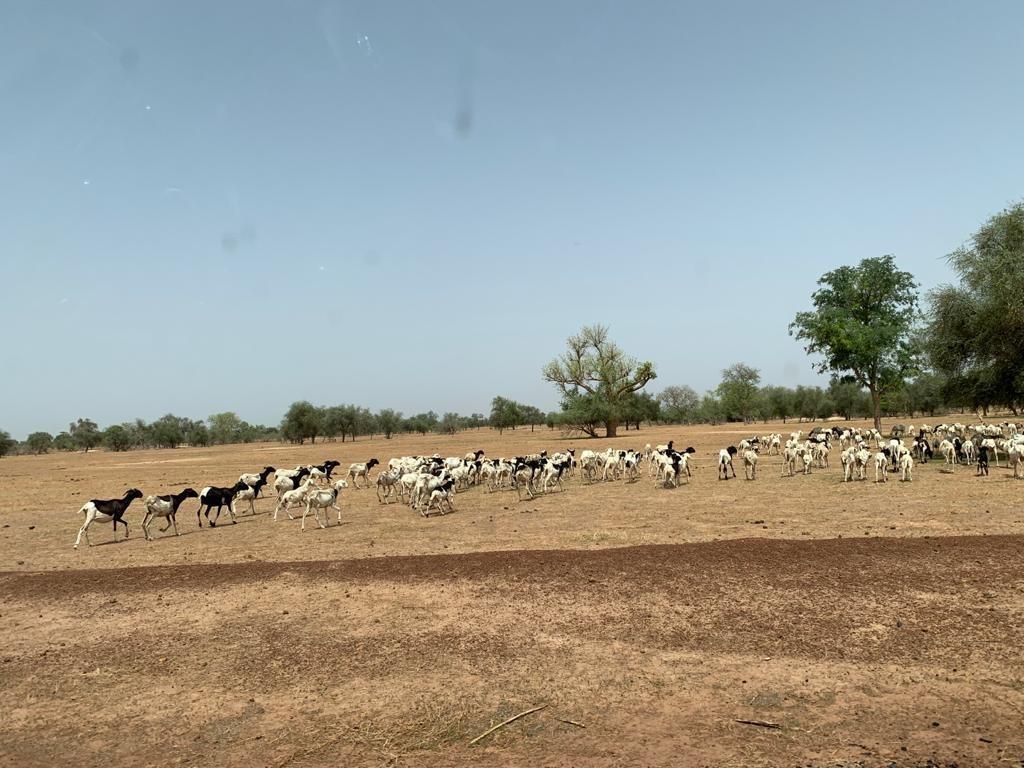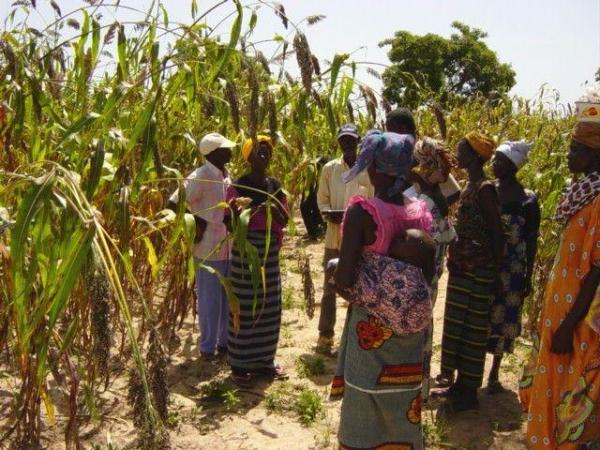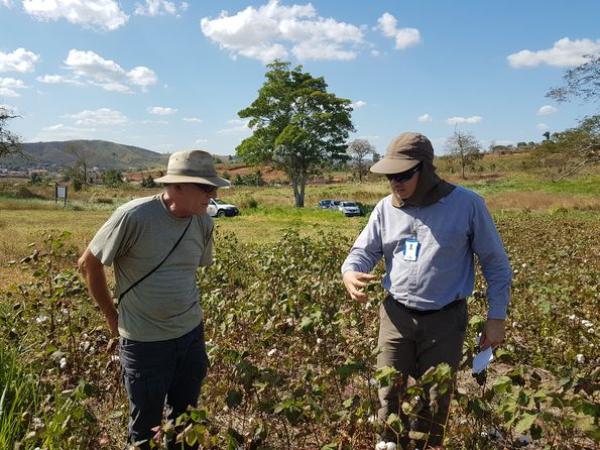Pastoralism makes a substantial contribution to the Sahelian economy. This livestock farming system has changed dramatically in recent decades: droughts, an increase in conflicts over natural resource management, the degradation of pastoral resources and a certain withdrawal of Sahelian governments in the 1970s-1980s. The dP PPZS is a multidisciplinary, co-constructed research partnership born of a desire to work on pastoral systems and their recognition in the Sahelian drylands, by pooling different types of knowledge (agronomy, animal science, geography, ecology and economics). The PPZS was established in 2001 as a scientific interest group, a flexible framework allowing for new national or regional partnerships. The platform was organised around a governance model, a four-year scientific programme and a management, monitoring and evaluation system. Today, this partnership includes CIRAD, the Centre de Suivi Ecologique (CSE - Ecological Monitoring Centre), Cheikh Anta Diop University of Dakar (Senegal) and the Institut Sénégalais de Recherches Agricoles (ISRA - Senegal Institute for Agricultural Research). It facilitates multi-stakeholder dialogue, skills and knowledge sharing and innovation, with a view to understanding pastoral systems and working to develop them and to integrate them into national economies.
The why and how of an ImpresS ex post study on the dP PPZS
After 20 years of existence, the dP PPZS was evaluated in 2021 using the ImpresS ex post method. The case study was led by the SELMET research unit, which specialises in livestock systems in Mediterranean and tropical regions, with the support of the ImpresS team. Combining individual semi-structured interviews (remote and in person in Senegal), a participatory multi-stakeholder workshop (online, 32 participants) and a survey (around 30 responses), the goal of the study was to identify the impacts to which the dP PPZS – an organisational innovation – has contributed in Senegal and the neighbouring Sahel countries, and to determine how and through which mechanisms such partnerships and the associated research are vectors of lasting change. The study resulted in various outputs, including an innovation story, a stakeholder map and an impact pathway.
The study focused on the research projects that have shaped the PPZS trajectory: 50 projects were identified as being the most structural for the dP. These concern the production and formalisation of new knowledge, the design of tools – policy briefs, training modules, management tools, maps, databases – and finalised research protocols, the development of academic teaching and training, of expertise in the evaluation of dairy and meat value chains in the Sahel, and the production of arguments and advocacy aimed at development interventions and policies.
Two key phases in the evolution of the PPZS
1998-2012: the creation of the platform
This first phase was marked by activities required prior to the creation of a “pastoralism and drylands platform”. This involved reaching out to research and development organisations, establishing a multidisciplinary team and presenting a governance model as well as a four-year scientific programme to the supervisory authorities. In this phase, the aim was to build a national base around the Ferlo region, with gradual integration into scientific networks through participation in inter-institutional projects. Multidisciplinarity and participatory approaches underpinned all actions aimed at renewing knowledge on ecosystems and building decision support tools. At the same time, the PPZS was actively involved in academic and technical training within higher education institutions and with professional and livestock farming organisations. During this initial phase, the PPZS developed an extensive network of partners working in research, education, development, professional livestock farmers’ organisations, NGOs and intergovernmental organisations.
2013-2021: consolidation and outreach
The second phase was marked by science and partner outreach with the sub-region (for example, prospecting activities in Burkina Faso, Mali, Mauritania and Niger among research and development institutes working on pastoralism) and by renewed interest in pastoralism from policymakers. In particular, 2012 was a pivotal year for research on pastoralism due to strong interest in this livestock farming model and its development on the part of regional and international public actors. Some major unifying projects were implemented on the issue of pastoralism, with support from the PPZS. The strategic direction of the new PPZS scientific programme has increasingly focused on understanding and supporting the sustainability of socio-ecosystems in drylands faced with the different global changes underway. In this second phase, the network expanded over time, and intensified particularly with local authorities, research and education structures, farmers’ organisations and NGOs. Political ties remained limited, mostly to the context of projects or consultations, but links were strengthened within regional (CILSS) and international (FAO, World Bank) networks that increasingly request and mobilise research.
What contributions to change?
The adoption of knowledge and outputs produced by the PPZS has resulted in numerous changes for various stakeholders.
Regulation
- Formulation of new regulations (e.g. the municipal authorities in Ferlo have adopted regulations to organise agropastoral zoning and land tenure)
- Development by the Ministry of Livestock and Animal Production of a Pastoral Code and use of a livestock census methodology
Organisation
- New organisational strategies (e.g. integration of knowledge linked to characteristics of the dairy industry and the sector at the Laiterie du Berger)
- New collaborations focusing on industrial strategies and dairy policies, for dairy sector actors and public stakeholders
Operations and communication
- Creation of a platform entitled “Transverses - Information on livestock farming and pastoralism in West and Central Africa” further to the adaptation of PPZS training modules by NGOs and to awareness raising for journalists on the challenges of pastoralism
- Structuring of farming organisations’ arguments and co-production of policy recommendations. PPZS support has enabled civil society organisations to progress from making demands to making counter-proposals.
- Mobilisation and adaptation of mapping tools for negotiating with investors by livestock farmers’ associations
- Mobilisation of knowledge and skills acquired through the PPZS by students within their new professional environment (the PPZS has trained around 250 students - PhD, Master’s, and engineering levels)
The survey conducted among PPZS students and doctoral candidates shows that a large majority feel the training received from the PPZS has influenced their career paths or further studies through i) the acquisition of specific practical and theoretical skills, ii) the attainment of a degree and iii) the network and the confidence placed in the PPZS.
The PPZS Impress ex-post study explores 20 years of research on pastoralism in the Sahel. For the members of the PPZS, it has particularly raised awareness of the extent of the work accomplished. Beyond the number of projects, publications and conferences resulting from this scientific partnership, it is the large number of students and doctoral candidates trained that emerges as a major strength of the PPZS, and which ultimately forms the basis of its impact for the coming decades
Christian Corniaux
researcher in the SELMET research unit and co-author of the study
Societal impact
Despite the density of information and the range of different actors interacting with the PPZS, the study has revealed the impacts to which the dP has contributed.
Policy impacts
- The demands of agropastoral communities are presented to high-level bodies through advocacy actions
- Contribution to ensuring research-based recommendations are taken into account by regional organisations and programmes (for example, integrating livestock movements into chamber of commerce regulations, securing transhumance routes)
- Contribution to progress in the political discourse on pastoralism
- Contribution to the development, application and harmonisation of public policies concerning livestock mobility, land tenure and zoning to take greater account of pastoralism
Social impacts
- Pastoralism benefits from more context-relevant communication based on scientific knowledge, adapted to the realities of agro-silvo-pastoral issues, without stereotypes
- Dairy and meat sector stakeholders have improved their interactions in the region. Some conflicts between transhumance stakeholders and livestock producers and traders have been settled through awareness raising on the different issues
- Pastoralism is recognised as a sustainable activity that drives change and requires security
This recognition and this policy shift nevertheless need to be qualified. Although pastoral legislation has evolved in recent decades in the countries of the region, pastoral systems are still blighted by insecurities and vulnerabilities. It should also be noted that these impacts can only be partially attributed to research, given the influence of other stakeholders and factors, both contextual and political. Many of the impacts of the PPZS involve stakeholder capacity building (technical and academic training), changes in the public discourse through inputs of solid arguments, greater legitimacy, networking based on studies and/or support for research, access to scientific knowledge and media coverage of issues in this field.
The organisational model of the dP PPZS (co-constructed, multi-institutional, multidisciplinary) enables researchers and field actors to pool their efforts in order to address national and regional needs. The findings of the study also show that the range of different actors interacting with the PPZS (whether directly or indirectly) and the co-production of outputs and outcomes through field actors and partners helps to generate diverse impacts. This study has highlighted the importance of certain public actors and policymakers in designing or scaling policies that help to secure agropastoral systems.
Note: the phase of the study focusing on measuring impacts was only partially implemented. First and second level impacts were characterised and indicators were identified. However, it proved impossible to collect all of the evidence and elements (secondary data) needed to measure and rank all of the impacts based on the indicators identified. See the full study for an understanding of the impact indicators and evidence gathered to support these impacts.



























.jpg)
